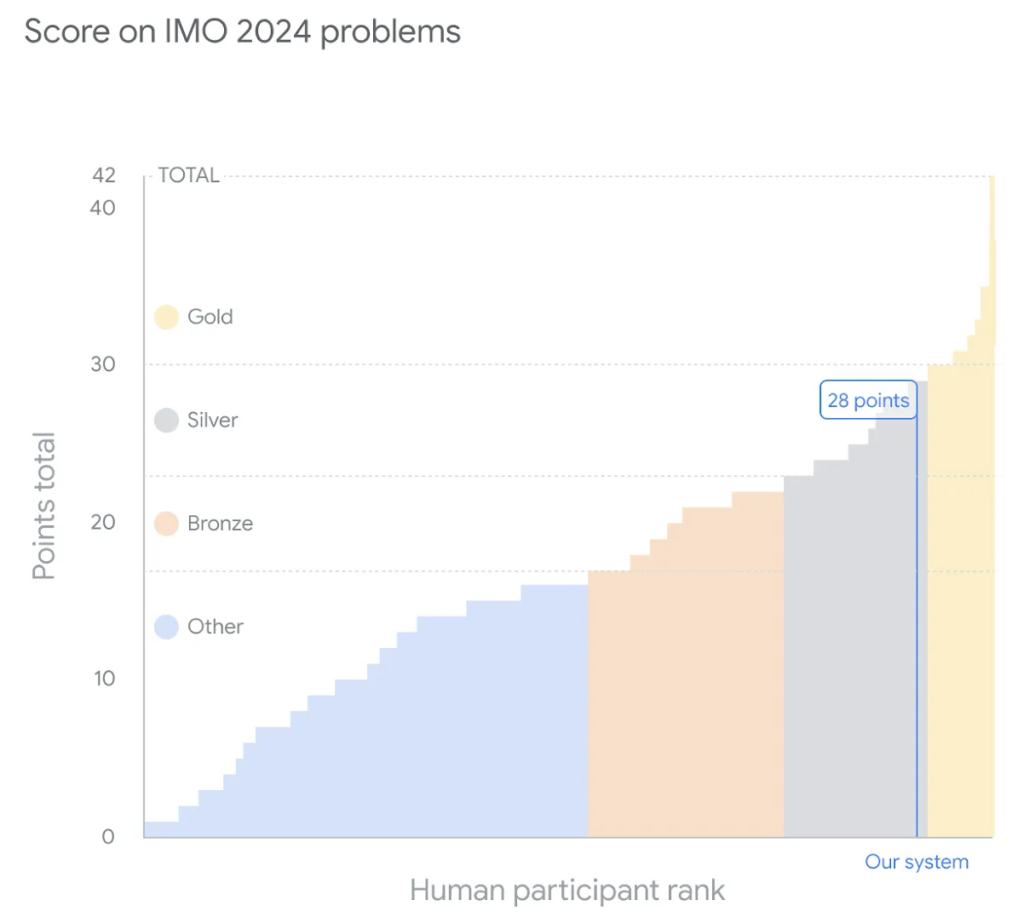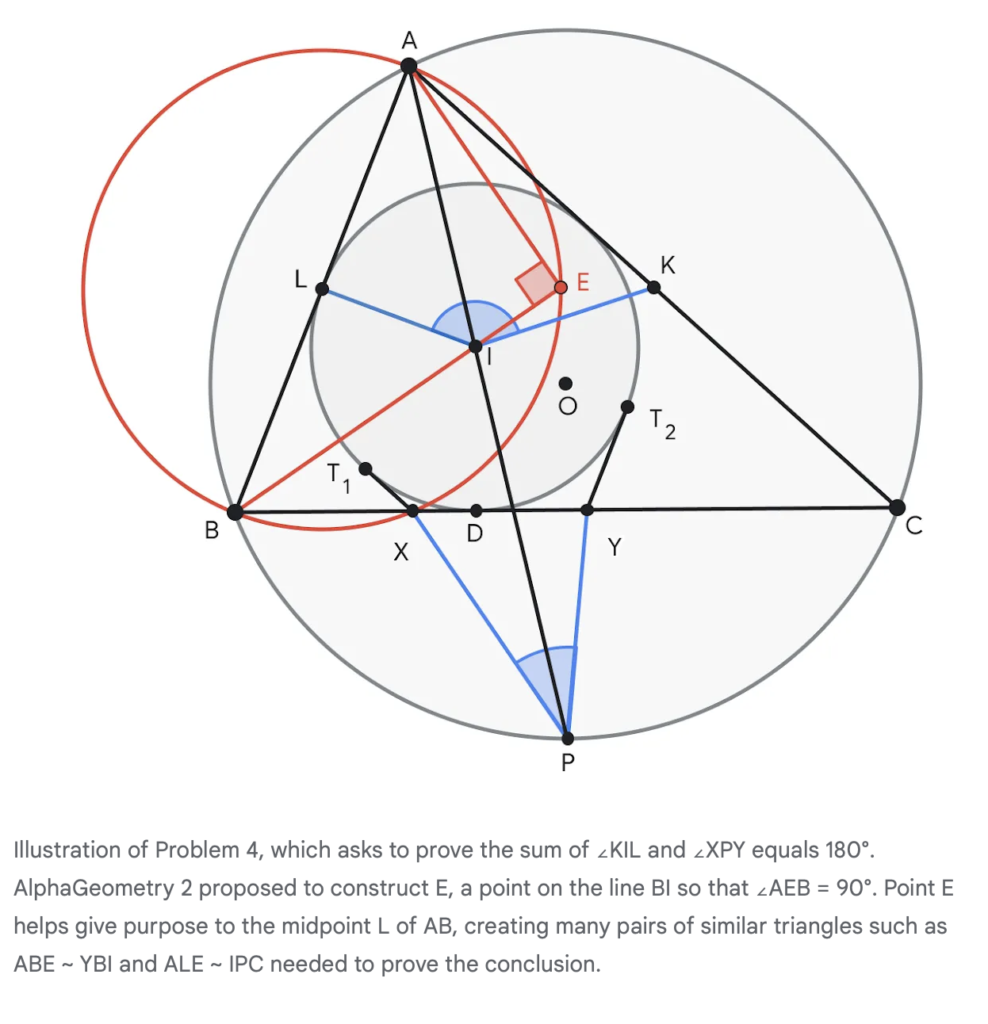AI Systems Compete at the International Mathematical Olympiad
- Google DeepMind’s AI systems solved four out of six problems at this year’s International Mathematical Olympiad.
- AlphaProof and AlphaGeometry 2 demonstrated advanced problem-solving capabilities in algebra, number theory, and geometry.
- The AI systems scored 28 out of 42 possible points, achieving a level comparable to silver medalists.

Google DeepMind has achieved a new milestone in artificial intelligence with its AI systems, AlphaProof and AlphaGeometry 2, solving complex mathematical problems at the International Mathematical Olympiad (IMO). These systems collectively solved four out of six problems, demonstrating abilities on par with some of the world’s top young mathematicians. This achievement highlights the potential of AI to tackle challenging mathematical tasks, a significant step forward in machine learning.
The Challenge of Mathematical Problem Solving
Mathematical problem solving, especially in the context of the IMO, is known to be extremely challenging. These problems require not only advanced mathematical knowledge but also creative and strategic thinking. Traditionally, AI systems have struggled to achieve high success rates in this domain. Solving such problems involves generating step-by-step proofs, a process that has been beyond the reach of current AI technologies until now.

How DeepMind’s AI Systems Work
AlphaProof:
- Reinforcement Learning: AlphaProof employs a reinforcement learning approach, teaching itself through trial-and-error without human intervention. This method has been successfully used in other DeepMind projects, such as AlphaGo and AlphaStar.
- Fine-Tuning with Lean: The system was fine-tuned using Google’s Gemini model to translate 1 million mathematical problem statements into the programming language Lean. This translation allows the AI to work with a wide range of mathematical problems.
- Solution Generation and Verification: AlphaProof generates potential solutions and checks them against possible proof steps. Successful steps are fed back into the model, improving its problem-solving capabilities over time.
AlphaGeometry 2:
- Synthetic Data: Due to the limited availability of training data for math-focused AI models, AlphaGeometry 2 was trained using synthetic data generated by AI itself.
- Performance: This system solved the competition’s geometry problem in just 19 seconds, showcasing its efficiency and accuracy.
Performance at the IMO
AlphaProof managed to solve three of this year’s IMO problems, including two algebra problems and one in number theory. The time required for solving these problems varied from minutes to several days. Meanwhile, AlphaGeometry 2 solved the geometry problem in under 20 seconds. However, the systems were unable to solve two combinatorics problems. Overall, the AI systems scored 28 out of 42 possible points, positioning them in the silver medal range, just one point short of gold.

Expert Opinions and Implications
Fields medalist Timothy Gowers, who served as one of the judges, was impressed by the AI’s ability to come up with innovative solutions, referring to these as “magic keys.” Despite the AI’s success, Gowers emphasized the need for further research to understand how the AI achieved these results.
David Silver, DeepMind’s vice president of reinforcement learning, noted that while the AI systems are not yet contributing to new mathematical knowledge, they have proven capable of solving problems that challenge top young mathematicians. This development suggests that AI could eventually play a significant role in mathematical research and education.
The Big Picture
DeepMind’s achievement with AlphaProof and AlphaGeometry 2 marks a significant advancement in AI’s ability to tackle complex mathematical problems. While these systems are not yet solving open research problems, their performance at the IMO indicates substantial progress in AI’s problem-solving capabilities. This success could pave the way for AI to assist in various fields requiring complex reasoning and creativity, extending far beyond mathematics.
As AI continues to evolve, the potential applications in education, research, and industry are vast. By integrating AI systems capable of advanced problem-solving into these domains, we can enhance our ability to tackle some of the most challenging questions and tasks in the world today.
